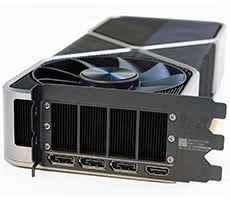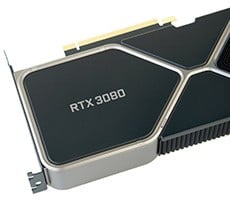Definitive Bioshock Infinite Review with Benchmarks
Benchmark Performance: AMD vs Nvidia
One of the biggest draws of the Radeon HD 7790 is that AMD GPUs currently ships with a copy BioShock Infinite. Given how great the game is, this should be considered a serious factor in the purchase decision. The offer isn't unique to the Radeon HD 7790, but the card's low purchase price ($149) make a $59 game a sizeable chunk of the total cost.
We tested the Radeon HD 7790 against Nvidia's GeForce GTX 650 Ti Boost using the built-in benchmark. The game offers multiple benchmark modes, including the option to test user-created settings. We used the DX11 High benchmark, DX11 - Ultra, and DX11 - Ultra with an alternate depth of field test.
All three benchmarks were run at 1920x1080. We also tested the Radeon HD 7790 in an overclocked configuration, to see if boosting the card's clock rates would substantially improve the results.

These figures mirror the results we've seen elsewhere. AMD's Radeon HD 7790 is a good graphics card. It delivers 60 FPS in DX11 with high detail levels. There's absolutely nothing wrong with that -- but the Radeon HD 7790 isn't nearly as fast as the GeForce GTX 650 Ti BOOST. This isn't very noticeable at High detail settings, but at Ultra and Ultra with DOF, the difference is significant.

Overclocking the GPU from 1075MHz up to 1200MHz had virtually no impact on performance, which suggests this is a memory bandwidth issue. The 7790 has a 128-bit bus clocked at 1600MHz and 100GBps of memory bandwidth -- the GTX 650 Ti Boost has a 192-bit bus and 144GBps of bandwidth total, plus a 2GB frame buffer as compared to the Radeon HD 7790's 1GB.
Clearly, the GeForce's advantages pay off at the top detail levels -- but there's a pretty compelling value argument here. If you're going to buy BioShock Infinite and a new GPU, the total value proposition looks like this:
Radeon HD 7790 + BioShock Infinite = $149.
Nvidia GTX 650 Ti Boost + BioShock Infinite = $169 (GPU) + $59 (game) $228.
That $80 difference is enough to step up to a faster Radeon GPU that would narrow the gap with the GTX 650 Ti Boost or to pocket a nice bit of cash. Normally I don't do much single-game value analysis -- most people play many games, and so the value of any single free title is diluted.
BioShock Infinite is so good, I'm effectively bending that rule in this specific case. This game is worth buying a new GPU for. That's another fancy way of saying that I'd pay more than $59 for it, if Irrational Games had set the price that high.
We tested the Radeon HD 7790 against Nvidia's GeForce GTX 650 Ti Boost using the built-in benchmark. The game offers multiple benchmark modes, including the option to test user-created settings. We used the DX11 High benchmark, DX11 - Ultra, and DX11 - Ultra with an alternate depth of field test.
All three benchmarks were run at 1920x1080. We also tested the Radeon HD 7790 in an overclocked configuration, to see if boosting the card's clock rates would substantially improve the results.

These figures mirror the results we've seen elsewhere. AMD's Radeon HD 7790 is a good graphics card. It delivers 60 FPS in DX11 with high detail levels. There's absolutely nothing wrong with that -- but the Radeon HD 7790 isn't nearly as fast as the GeForce GTX 650 Ti BOOST. This isn't very noticeable at High detail settings, but at Ultra and Ultra with DOF, the difference is significant.

Overclocking the GPU from 1075MHz up to 1200MHz had virtually no impact on performance, which suggests this is a memory bandwidth issue. The 7790 has a 128-bit bus clocked at 1600MHz and 100GBps of memory bandwidth -- the GTX 650 Ti Boost has a 192-bit bus and 144GBps of bandwidth total, plus a 2GB frame buffer as compared to the Radeon HD 7790's 1GB.
Clearly, the GeForce's advantages pay off at the top detail levels -- but there's a pretty compelling value argument here. If you're going to buy BioShock Infinite and a new GPU, the total value proposition looks like this:
Radeon HD 7790 + BioShock Infinite = $149.
Nvidia GTX 650 Ti Boost + BioShock Infinite = $169 (GPU) + $59 (game) $228.
That $80 difference is enough to step up to a faster Radeon GPU that would narrow the gap with the GTX 650 Ti Boost or to pocket a nice bit of cash. Normally I don't do much single-game value analysis -- most people play many games, and so the value of any single free title is diluted.
BioShock Infinite is so good, I'm effectively bending that rule in this specific case. This game is worth buying a new GPU for. That's another fancy way of saying that I'd pay more than $59 for it, if Irrational Games had set the price that high.






